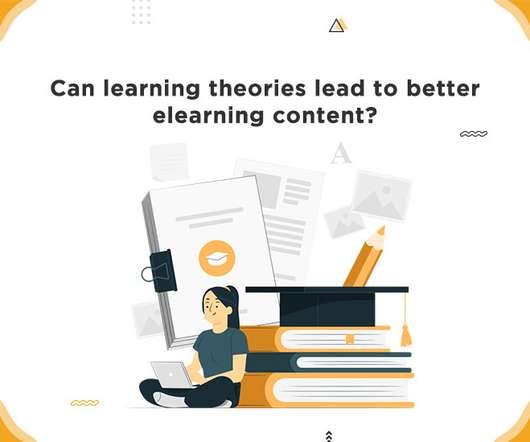Can learning theories lead to better elearning content?
Creativ Technologies
MARCH 24, 2022
The learning theories can take your e-learning content in a new direction because they can improve its comprehension. So, many learning theories can ensure that learners take a lot of interest in the content. We all have 5 basic needs, as per Maslow’s hierarchy of needs. appeared first on Creativ Technologies.

















Let's personalize your content